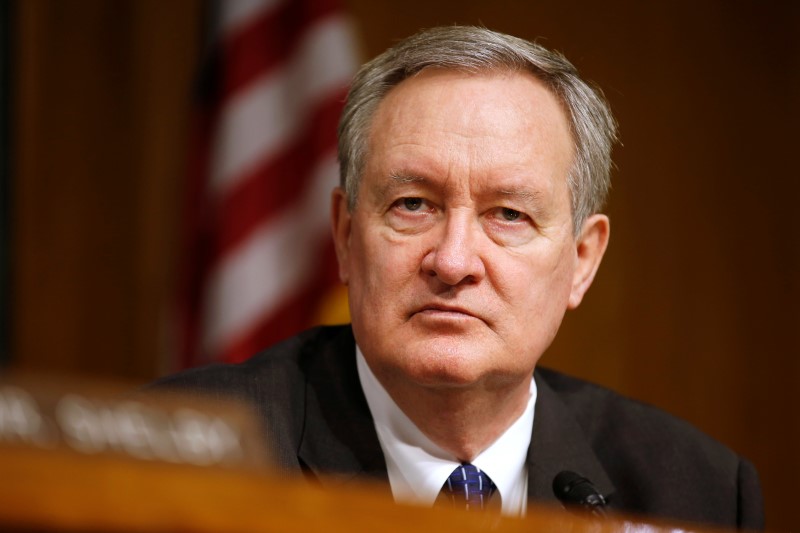Investing.com’s stocks of the week
By Sarah N. Lynch
WASHINGTON (Reuters) - The U.S. Senate Banking Committee's top two lawmakers unveiled a bipartisan piece of legislation on Wednesday designed to prevent a prolonged vacancy on the federal body that determines how large insurance companies are regulated.
The proposed legislation by Senate Banking Chairman Mike Crapo and Ranking Member Sherrod Brown would permit Roy Woodall, the independent insurance expert on the Financial Stability Oversight Council (FSOC), to remain in his job until a replacement can be nominated and confirmed, or for an additional 18 months.
The FSOC is a panel of regulators with the power to dub large financial firms, including insurers, as systemic, a tag that carries additional oversight by the Federal Reserve.
The panel has designated a number of insurers, including Prudential Financial Inc (NYSE:PRU), American International Group Inc (NYSE:AIG) and Metlife.
Metlife fought the designation in court and won.
The other two still carry the designation, though Prudential (LON:PRU) is widely expected to seek to have it rescinded. A two-thirds majority vote of FSOC's sitting members is needed to rescind a designation.
Woodall, who previously voted against designating Metlife and Prudential, is the only person on the panel with insurance expertise. But his six-year term expires in September.
As there is no federal insurance regulator, Woodall is effectively the most important figure in U.S. regulation of large insurers.
The FSOC is composed of heads of federal financial regulators and led by U.S. Treasury Secretary Steven Mnuchin.
All of the FSOC's other members are allowed to continue serving in their roles on expired terms, or be temporarily replaced with an acting member if there is a vacancy.
But due to a quirk in the Dodd-Frank law, Woodall cannot be held over or temporarily replaced after his term expires - a problem that could leave a gap on the FSOC.
Wednesday's proposed bill will provide "much-needed clarity regarding the independent insurance member’s term," Crapo said. Brown added that the fix represents a "commonsense" bipartisan measure.
It is also backed by a large list of other Republicans and Democrats on the panel - a sign it will likely win broad support by lawmakers in Congress.
